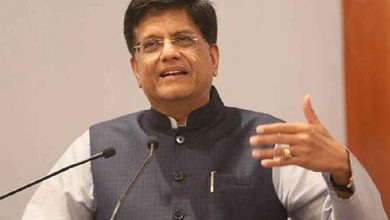Interest rate unchanged, inflation forecast raised, but growth expected

Mumbai, Aug 06 (PTI):
The Reserve Bank of India (RBI) on Friday expectedly kept interest rates unchanged at a record low as it chose to support economic revival despite raising its forecast for inflation.
The six-member Monetary Policy Committee (MPC) voted unanimously to retain the main repurchase (repo) rate — the key lending rate at which the central bank lends short-term funds to banks — at 4 per cent, but was split on continuing with the lower-for-longer stance. “The MPC also decided on a 5 to 1 majority to continue with the accommodative stance as long as necessary to revive and sustain growth on a durable basis,” RBI Governor Shaktikanta Das said while announcing the monetary policy.
This was a departure from the past when they were unanimous on the need to support growth. An accommodative stance means a rate hike is unlikely. RBI saw consumer price inflation (CPI) peaking to 5.9 per cent in July-September before falling to 5.3 per cent in the next quarter and rising to 5.8 per cent in January-March. Consumer inflation is seen at 5.1 per cent in first quarter of the next fiscal FY23. The central bank scaled down the growth projections for the next few quarters in the current fiscal but raised the forecast for April-June to 21.4 per cent.
With the ebbing of the second COVID wave, RBI retained its GDP growth forecast for the current fiscal year ending in March 2022 at 9.5 per cent, but revised its retail inflation forecast to 5.7 per cent, up from the earlier 5.1 per cent. he Reserve of India (RBI) does not have a specific target for the yield curve but and focuses on the orderly evolution of it, Governor Shaktikanta Das said on Friday.
We are focusing on orderly evolution of the yield curve. We do not have a specific target of a yield curve, Das told reporters after the post monetary policy conference.
He said the central bank does timely intervention in the market as and when required. Das said intervention is not just post the primary auction of government securities, but also through various measures like Government Securities Acquisition Programme (G-SAP), Open Market Operations (OMO), operation twist, and also through intervention in the secondary market.








